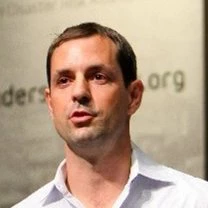
The link between poverty and disasters is becoming clearer – new research shows that extreme weather events alone are pushing up to 26 million people into poverty every year. With forces like climate change, urban expansion, and population growth driving this trend, annual losses have passed more than $500 billion annually, and show no signs of slowing.
With limited time and resources, however, adequate preparedness for these common events is often neglected in developing countries. The result is a pattern of deficient recovery that is imperiling sustainable development, and leaving millions of the most vulnerable behind.
Be Ready for Recovery
Experience shows that it is critical that disaster-prone countries establish the necessary institutional, policy, and budgetary arrangements before a disaster occurs, while also strengthening their capacity for coordination and implementation. These preparations enable governments to not only respond more timely and effectively, but also empower communities to build back better in the wake of a disaster, strengthening their resilience to future events. Yet, while countries are investing more in disaster risk management, these efforts often lack the institutional and governance arrangements needed for this kind of recovery.
The World Bank and UNDP are keenly aware of this gap, and have been working closely with partners, most notably the European Union, to support countries in boosting preparedness for disaster recovery. Since an initial tripartite agreement in 2008, these three partners have supported 52 countries in post-disaster needs assessments (which guide the recovery process) and prepare 20 recovery strategies and frameworks. One key lesson taken from this process is that the more prepared in advance for recovery a country is – regardless of their given resources – the more successful they are likely to be.
[[avp asset="/content/dam/videos/backup/2018/jun-84/wrc3_final_closing_video_basic_-_small.flv"]]/content/dam/videos/backup/2018/jun-84/wrc3_final_closing_video_basic_-_small.flv[[/avp]]We have seen exciting recent progress in this regard. With the support of Luxembourg and Japan, UNDP is currently undertaking a five-country recovery preparedness programme in Africa, which includes developing capacities for assessing recovery needs, planning and implementing recovery interventions, and developing financial mechanisms for recovery. And, in the three years since its launch, a Disaster Recovery Framework Guide undertaken by the World Bank, UNDP, and the EU has been used by countries like Fiji, Malawi, and Nepal to develop customized recovery plans, helping them recover faster and remain stronger in the face of compounding global risks.
The World Bank’s Global Facility for Disaster Reduction and Recovery (GFDRR) is also adapting lessons in recovery from disasters to implement in other crises, like fragility and conflict situations. In 2014, GFDRR helped estimate more than $4 billion in recovery needs in Syria using social media analysis, data mining, and detailed satellite imagery. More than 17 fragile and conflict-affected states have received additional support over the last year.
Looking Ahead
Importantly, recovery has now been included as one of its four pillars of Sendai Framework for Disaster Risk Reduction, which was adopted by the international community in 2015 as a global charter for better managing impacts from natural disasters. This inclusion has raised the expectation that countries develop policies, institutions, and financial mechanisms for effective recovery, and expand their risk reduction systems to integrate recovery planning and implementation. While investing in priority areas to meet the goals of Sendai, countries can simultaneously build key institutional and resource capacities for recovery.
We are seeing that this is not only possible, but achievable. While much more remains to be done, there are signs of progress. The governments of Ecuador and Sri Lanka, for instance, have allocated over $600 million and $103 million respectively for long-term recovery following post-disaster needs assessments in 2016. Likewise, stakeholders at the recent Global Platform for Disaster Risk Reduction in Cancun reiterated the need to strengthen disaster risk governance, which includes an element on recovery.
As hundreds of representatives from developing countries and other organizations meet in Brussels for the Third World Reconstruction Conference, the issues of financing and preparing for recovery are sure to be front and center in the discussions. For our part, the World Bank and UNDP – both co-hosts of this important gathering and drawing on nearly 10 years of partnership on disaster recovery – will be strongly advocating for a more ‘ready for recovery’ approach.
Related: As Natural Disasters Rise, Countries Call for Action on Resilient Crisis Recovery Planning


Join the Conversation